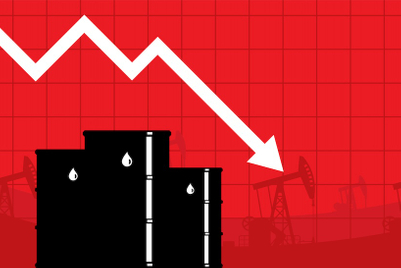
António Guterres (pictured) has insisted that “polluters must pay”, telling attendees at the United Nations General Assembly in New York yesterday: “We need to hold fossil-fuel companies and their enablers to account.”
This “includes the massive public relations machine raking in billions to shield the fossil-fuel industry from scrutiny”, he continued.
“Just as they did for the tobacco industry decades before, lobbyists and spin doctors have spewed harmful misinformation. Fossil-fuel interests need to spend less time averting a PR disaster – and more time averting a planetary one.”
Saudi Aramco
This comes just days after a new report, by Clean Creatives and Comms Declare, revealed details of PR and advertising agencies working for the state-owned Saudi Arabian Oil Company (Saudi Aramco), which is among the world’s biggest polluters.
The F-List 2022, released this week, records at least 17 advertising and PR companies doing business with Saudi Aramco since 2018, with a large portion of these contracts being held by Interpublic Group (IPG) companies.
Clean Creatives asserts that one agency, Well7, owned by IPG’s Mediabrands division, was established to carry out work for Saudi Aramco, being named after the well that first struck oil in Saudi Arabia in 1938. The exact operations of this agency were not specified, with online evidence of Well7 being scarce, beyond a job listing (below) that describes it as “a fully integrated agency solution across all facets of communications”.

Other IPG involvement with Saudi Aramco is reported to include ad agency McCann Worldwide creating branding campaigns, marketing agency MRM supplying digital and marketing services, media network Universal McCann taking on media buying, and brand experience agency Jack Morton Worldwide claiming Saudi Aramco as a client.
Findings also show non-IPG agencies maintaining contracts across digital services, branding and public affairs for Saudi Aramco since 2018. Among these were WPP’s AKQA, BCW and Hill+Knowlton; Publicis firms MSL, Digitas UK, Publicis Communications and Leo Burnett; Cheil Worldwide, part of Samsung Group; and independent agencies Brunswick and Boldt Partners.
Saudi Aramco’s latest annual financial report indicated spending of more than $32bn on new fossil-fuel projects, massively outweighing its $300m investment in renewable energy.
Sustainability statements
The F-List 2022 also scrutinises holding companies against their environmental pledges, detailing how IPG’s sustainability and environmental impact policy “advises their employees to choose double-sided printing, take public transportation and use low-energy lighting”, and provides “data on how their greenhouse gas emissions decreased from 2019 to 2020 (notably because of the pandemic)”, without addressing work for fossil-fuel clients and the impact of this.
The report continues: “Despite IPG’s climate ambitions, they continue to work with ExxonMobil, Aramco, Valero, Repsol and Equinor – clients who largely have expressed an interest in increasing fossil fuel production.”
Similar condemnation is directed towards Publicis and WPP for making carbon neutrality and net zero commitments while having fossil-fuel clients – in contrast to Omnicom, which has not made significant sustainability commitments, and states that “our industry has less of an environmental impact than others” on its CSR website.
F-List 2022 overview
A total of 239 advertising and PR agencies are listed as working with fossil-fuel companies in the F-List report, which was compiled by industry campaign groups Clean Creatives and Comms Declare.
In comparison to last year’s edition, which spotlighted 90 agencies, the latest F-List depicts more than twice as many agencies (239) as having environmentally controversial clients. This is largely due to Clean Creatives expanding its research to have a greater global focus, specifically in the Latin America and the Asia-Pacific regions.
According to Clean Creatives, Edelman retains its role as the independent agency doing the most work for fossil-fuel companies, despite the agency making a pledge in early 2022 to review its client policy, and overall showing some “small signs of progress”.
The updated report says Edelman's global clients include Shell, Exxon, Chevron, Puget Sound Energy, American Fuel & Petrochemicals Manufacturers, National Mining Association, Edison Electrical Institute, National Association of Manufacturers, TransCanada, Task Force on Shale Gas, and SABIC.
The F-List 2022 was compiled using web archives, because Clean Creatives and Comms Declare state that “most agencies have erased references to fossil-fuel clients from their websites”, adding: “The vast majority of this work is not shared via agency channels or with clients whose work may be affected by greenwashing claims by oil companies.”
Duncan Meisel, executive director of Clean Creatives, said of the group’s methodology: “All of the F-List is backed by publicly available information such as legal notices, media statements, award ceremonies and client case studies (active and expired) to determine their work with fossil-fuel clients. We welcome any effort by the agencies named on this list to clarify their current policy toward working with fossil fuel clients.”
PRWeek has contacted IPG, WPP, Publicis and Edelman for comment, but had not received any response at time of publishing.
Meisel added: “Advertising and PR companies have had decades of warnings that their relationships with fossil-fuel companies are harming their reputation and their clean clients. Until now, executives have chosen to ignore those warnings, with serious consequences for the planet and their ability to attract and retain young talent. Over 400 agencies have pledged not to work with fossil fuels because working with polluters is bad for business and bad for the planet.”
Dr Genevieve Guenther, founding director of End Climate Silence, said: “It is unconscionable that any PR firm would help greenwash the actions of the companies doing the most to prevent the necessary transition to a clean, safe energy system.
“History will condemn those who continue to encourage the public to buy oil and gas, but it will celebrate those who changed course and told the stories of a new economy and a livable future.”



.jpg&h=334&w=500&q=100&v=20250320&c=1)



.png&h=334&w=500&q=100&v=20250320&c=1)

.png&h=334&w=500&q=100&v=20250320&c=1)

.png&h=334&w=500&q=100&v=20250320&c=1)


.jpg&h=268&w=401&q=100&v=20250320&c=1)




.jpg&h=268&w=401&q=100&v=20250320&c=1)
.jpg&h=268&w=401&q=100&v=20250320&c=1)